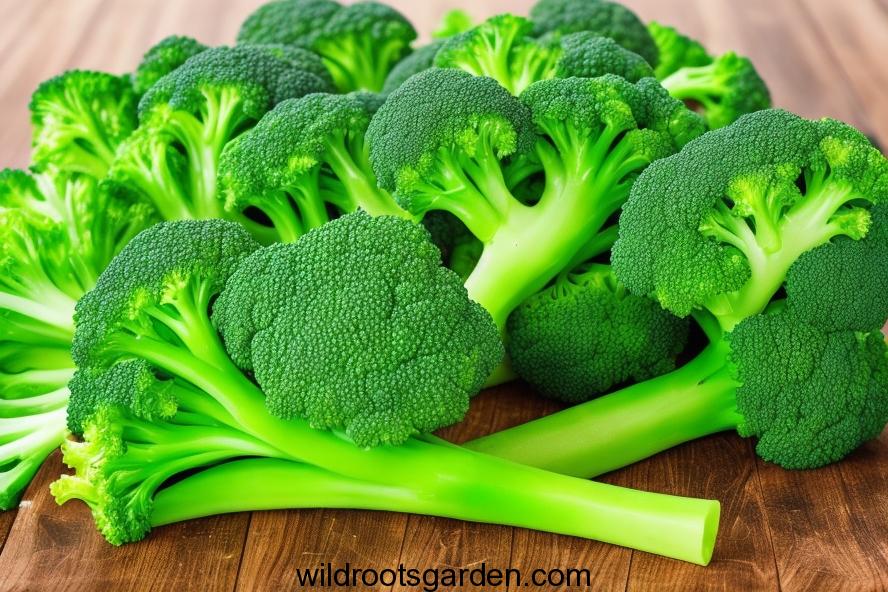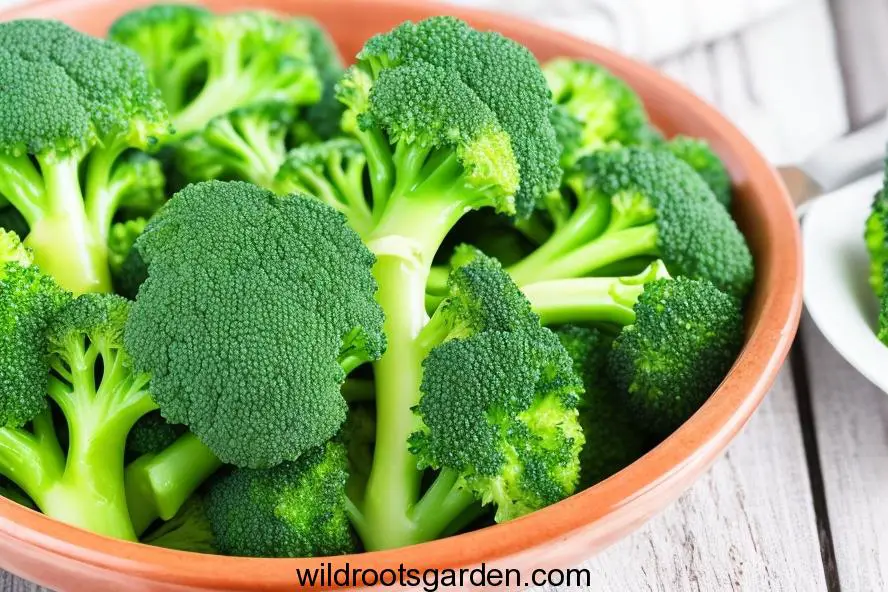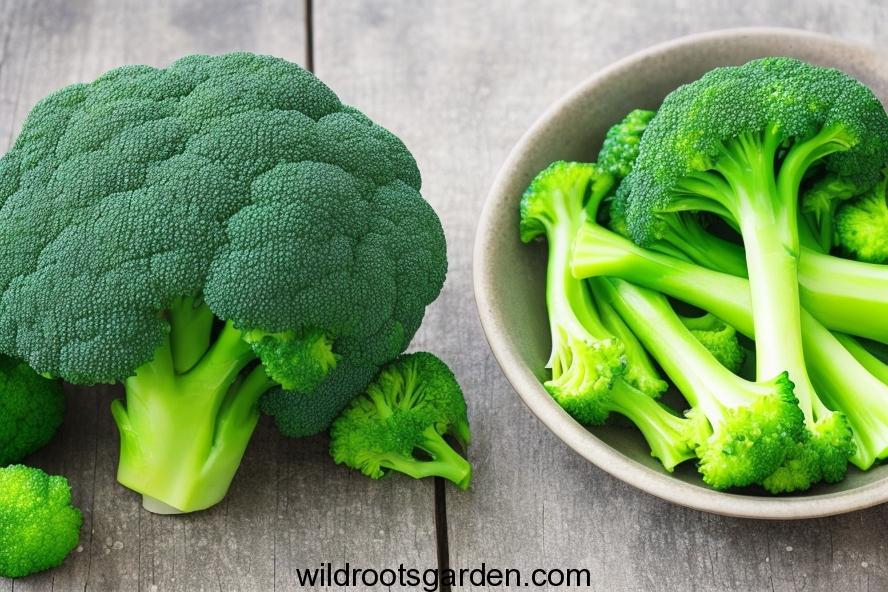Why Does Broccoli Make My Stomach Hurt? A confusing ache called stomach pain can occasionally be blamed on the nutrient-rich cruciferous vegetable broccoli for some people. Many who consume this bright green veggie have been curious and concerned about this mystery. Although broccoli is praised for its abundance of vitamins, fiber, and antioxidants, its complex makeup can cause gastrointestinal reactions that differ from person to person.
This investigation explores the complex connection between broccoli and digestive problems, illuminating potential causes of certain people’s stomach discomfort. We want to demystify the mechanisms causing this occurrence by comprehending the function of fiber and natural substances in broccoli as well as investigating the impact of individual sensitivities.
By dissecting scientific insights and expert opinions, we navigate through the digestive process, aiming to provide clarity on why broccoli might occasionally lead to tummy troubles. Whether you’re a broccoli enthusiast seeking to enhance your culinary experiences or someone seeking relief from discomfort, join us as we uncover the mysteries surrounding the connection between broccoli and stomach discomfort.
Understanding Broccoli’s Nutritional Profile
Broccoli is a powerhouse of nutrients, including vitamins C, K, and A, along with dietary fiber, antioxidants, and minerals. Despite its immense health benefits, some individuals may experience stomach discomfort after consuming broccoli.
Digestive System Functionality
The digestive process involves the breakdown of food in the stomach and intestines. Broccoli’s fibrous structure can challenge the digestive system, leading to discomfort, especially if not chewed thoroughly.

The Role of Fiber
Fiber is essential for digestive health, but excessive consumption of fiber-rich foods, like broccoli, can overwhelm the digestive system, leading to gas and bloating. Gradually increasing fiber intake can help reduce discomfort.
FODMAPs and Broccoli
Broccoli contains FODMAPs (Fermentable Oligosaccharides, Disaccharides, Monosaccharides, and Polyols), which are short-chain carbohydrates that some people struggle to digest. This can result in gas and stomach pain.
Enzyme Deficiency
Some individuals lack the necessary enzymes to break down certain compounds in broccoli, leading to incomplete digestion and discomfort. Cooking broccoli can help break down these compounds and ease digestion.
Cooking Techniques and Stomach Sensitivity
Raw broccoli can be harder to digest than cooked broccoli. Steaming or sautéing can make the vegetable gentler on the stomach, reducing the likelihood of discomfort.
Gut Microbiota Impact
The gut microbiota plays a significant role in digestion. Introducing broccoli gradually can help the microbiota adjust, potentially minimizing stomach discomfort.
Balancing Broccoli Consumption
Moderation is key. Balancing your broccoli intake with other easily digestible foods can help prevent stomach issues.

Tips for Reducing Stomach Discomfort
- Chew thoroughly
- Consume smaller portions
- Cook broccoli before eating
- Stay hydrated
- Pair with digestive aids like ginger or peppermint
Hydration and Digestion
Staying hydrated supports digestion. Drinking water throughout the day can aid in the breakdown of food, potentially reducing stomach discomfort.
Listening to Your Body
Every individual is unique. Pay attention to how your body reacts to broccoli and adjust your consumption accordingly.
Exploring Alternative Vegetables
If broccoli consistently causes discomfort, consider replacing it with other nutrient-rich vegetables like spinach, zucchini, or carrots.
Seeking Medical Advice
Persistent stomach discomfort should be discussed with a healthcare professional to rule out underlying digestive issues.
Broccoli’s Long-Term Benefits
Despite the potential for stomach discomfort, consuming broccoli offers long-term health benefits, including cancer-fighting properties, heart health support, and antioxidant benefits.
Conclusively, the enigmatic relationship between broccoli and stomach discomfort is a multifaceted interplay of dietary factors, individual sensitivities, and the complexities of digestion. While broccoli undeniably offers a myriad of health benefits, its potential to cause stomach pain in some individuals underscores the importance of mindful consumption.
***As we close this investigation into the mystery of why broccoli might induce stomach discomfort, remember that moderation and awareness are key. Consulting with a healthcare professional or a registered dietitian can provide personalized insights and strategies to navigate broccoli consumption without unwelcome digestive repercussions. Embracing a balanced and varied diet, rich in diverse vegetables, remains a cornerstone of promoting overall well-being.
So, the next time you enjoy a plate of broccoli, armed with newfound knowledge, approach it with an informed palate and a discerning stomach. By unraveling the complexities of this intriguing relationship, you empower yourself to savor the goodness of broccoli while minimizing any potential discomfort. Here’s to a harmonious union between your taste buds and your tummy!
FAQs
Can broccoli really cause stomach discomfort?
Yes, broccoli contains compounds that can challenge digestion, leading to discomfort in sensitive individuals.
Are there alternative vegetables with similar benefits?
Absolutely, vegetables like spinach, zucchini, and carrots offer comparable nutrients with potentially less stomach sensitivity.
Is it better to eat broccoli raw or cooked?
Cooking broccoli can make it gentler on the stomach by breaking down harder-to-digest compounds.
How can I reduce gas and bloating from broccoli consumption?
Chewing thoroughly, consuming smaller portions, and cooking broccoli can help reduce gas and bloating.
When should I seek medical help for stomach discomfort?
If stomach discomfort persists or worsens, it’s advisable to consult a healthcare professional to rule out underlying issues.

